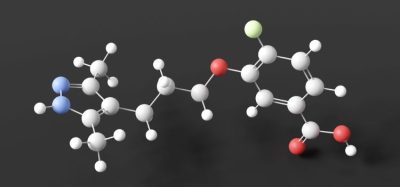Q BioMed to commercialise non-narcotic metastatic cancer pain drug
Posted: 12 June 2017 | Niamh Marriott (European Pharmaceutical Review) | No comments yet
Q BioMed Inc has initiated production of Strontium-89 Chloride, a radiopharmaceutical indicated for the analgesic treatment of metastatic breast and prostate cancer bone pain.


Q BioMed Inc has initiated production of Strontium-89 Chloride, a radiopharmaceutical indicated for the analgesic treatment of metastatic breast and prostate cancer bone pain.
Denis Corin, CEO of the Company said, “This is a major milestone in our short history. We are very excited to bring this product to market less than one year after finalising the licensing agreement. There is an acute demand for an affordable and effective alternative to opiate based drugs in this patient population. We know this proven drug is effective and well tolerated with limited side-effects.
We look forward to making it available as widely as possible and as quickly as possible. We believe there is significant opportunity to build this franchise and expand the revenue opportunity associated with it.”
Approximately 70% of patients with advanced breast and prostate cancer metastases will develop bone metastases, an extremely painful condition. Bone metastases occur in most tumour types but are most prevalent in cancers of the breast, prostate, and lung.
These bone lesions can cause serious skeletal complications, including spinal cord or nerve root compression, hypercalcemia of malignancy, pathologic fractures, and severe bone pain which can significantly compromise quality of life and may negatively affect survival. Palliation of pain, prevention of skeletal complications, and maintenance of quality of life are the primary objectives in managing patients with metastatic bone disease.
About the drug
AB-Rated Strontium Chloride Sr89 Injection USP (Sr89) can be used in combination with or to reduce the need for opiate based drugs, as well as in combination with cancer therapeutic drugs. After administration, pain relief can occur in as little as one to two weeks and can last several months, when another dose can be administered with minimal side effects.
Clinical studies have demonstrated that for many, the combination of alternating weekly chemohormonal therapies with Sr89 demonstrated a prolonged and progression-free survival.
The company expects to provide more information regarding initial commercialisation in the coming weeks.









